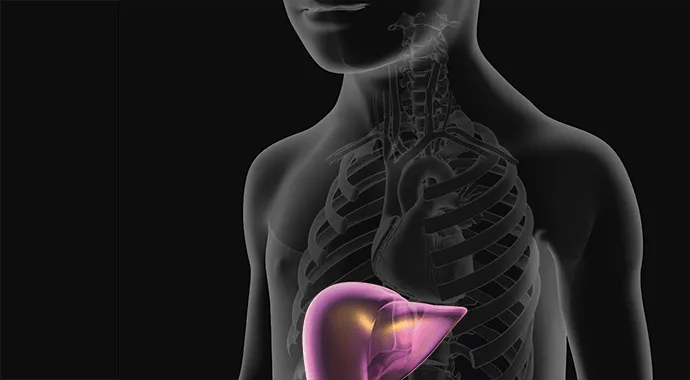One of few U.S. centers with expertise in rare metabolic disorder

Glycogen storage disease (GSD) is a rare metabolic disorder that affects 1 in 25,000 births per year, with GSD 1, the most severe form, affecting 1 in 50,000 to 100,000 births. This disorder can lead to fasting hypoglycemia, which can sometimes be severe, poor growth, developmental delay and metabolic abnormalities including metabolic acidosis. It is caused by an inherited deficiency in a series of enzymes involved in the degradation or synthesis of glycogen, and affects the liver, striatal muscle or both.
Advertisement
Cleveland Clinic is a non-profit academic medical center. Advertising on our site helps support our mission. We do not endorse non-Cleveland Clinic products or services. Policy
According to pediatric gastroenterologist Kadakkal Radhakrishnan, MD, Director of the Glycogen Storage Disease Program at Cleveland Clinic, several forms of GSD have been identified. “We primarily manage the types that affect the liver, such as types 0, Ia and Ib, III, IV, VI and IX,” he reports.
Until the early 1970s, the disease, especially GSD 1, was almost always fatal, due to a lack of effective treatment options. In 1971, however, it was recognized that the ingestion of uncooked cornstarch by mouth could treat hepatic forms of GSD by regulating blood sugar levels for extended periods of time.
Dr. Radhakrishnan and his team offer two diagnostic options for GSD: an outpatient clinic held once or twice a month and an inpatient program.
“In the outpatient setting, I work as a team with a nurse practitioner and dietitian to see patients, go through their diets, check their labs and give parents recommendations,” he explains. “If we decide a patient needs more evaluation, we admit them overnight or for a few days. During their inpatient stay, we closely monitor glucose and other metabolic parameters every hour, perform a liver ultrasound, analyze the data, test different treatment regimens and provide recommendations for dietary therapy.” Initially, Dr. Radhakrishnan advises parents to monitor a child’s glucose level several times a day at home, but as the patient stabilizes, checks can be performed as needed, especially for the milder types of GSD.
GSD is typically diagnosed through noninvasive laboratory testing and review of symptoms. “Today, we also have the capacity to perform genetic testing when we suspect a particular type of GSD based on clinical and biochemical abnormalities,” he says. “We collect white cells and look for mutations that can point to the various subtypes of GSD.”
Advertisement
Advances have also been made in terms of treatment, he says, with the goal of maintaining normal serum glucose levels and minimizing the metabolic derangements associated with hypoglycemia. Refinements in the dosing and timing of cornstarch administration over the past few years have helped GSD specialists not only keep patients alive, but have improved quality of life so they can live normal lives.
Type I is treated with raw (uncooked) cornstarch powder, which is mixed with water or soy milk and ingested at specified intervals throughout the day. Types 0, III, VI and IX are treated with cornstarch plus a high-protein diet. “We recommend strict avoidance of simple sugars (glucose, sucrose, lactose and fructose) to prevent overstorage of glycogen in the liver; if the diet isn’t followed, children won’t grow well and their liver function will not be optimal. The prognosis is very good if patients follow the diet, however,” he says.
Cornstarch must be administered every four to five hours, which means that babies and children must be awakened overnight. Skipping or delaying doses can lead to hypoglycemia, seizures, neurologic injury and even death. Extended-release cornstarch formulations have recently been developed that can maintain glucose concentrations while patients are sleeping.
Gene therapy is on the horizon to replace the deficient enzyme in GSD type I, via a variety of viral and non-viral vectors, and enzyme therapy is available for type II (which affects the heart, liver and muscle), Dr. Radhakrishnan reports, but trials have not yet started.
Advertisement
Advertisement

Findings hold lessons for future pandemics

One pediatric urologist’s quest to improve the status quo

Overcoming barriers to implementing clinical trials

Interim results of RUBY study also indicate improved physical function and quality of life

Innovative hardware and AI algorithms aim to detect cardiovascular decline sooner

The benefits of this emerging surgical technology

Integrated care model reduces length of stay, improves outpatient pain management

A closer look at the impact on procedures and patient outcomes